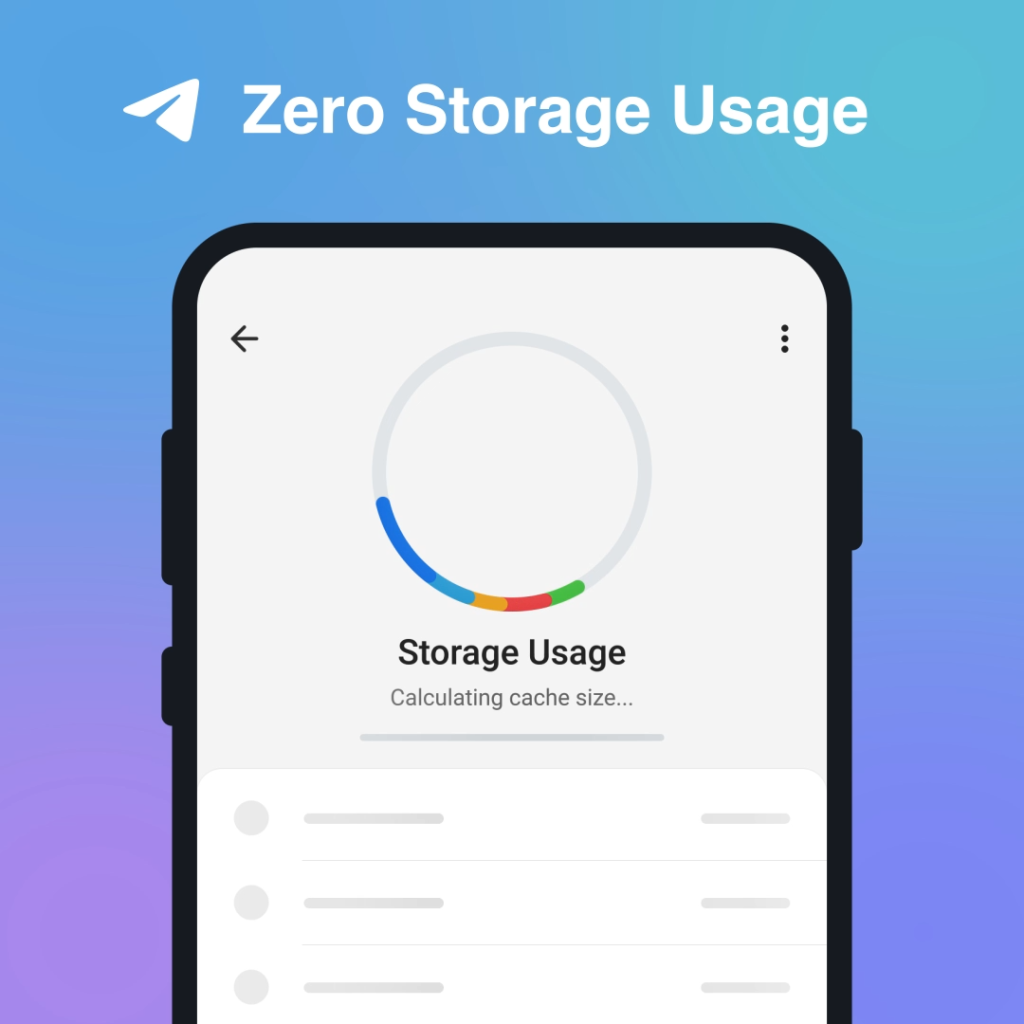
Yes, Trust Wallet is considered a safe app due to its strong security features, including private key control, encryption, and biometric authentication.
Security Features of Trust Wallet
Private Key Control
Trust Wallet emphasizes user security by ensuring that users have full control over their private keys. This means that only the user has access to their private keys, and they are not stored on any central server. Here’s how Trust Wallet manages private key control:
- Local Storage: Private keys are stored locally on the user’s device, reducing the risk of hacking through central server breaches.
- User Responsibility: Users are responsible for backing up their private keys and recovery phrases, which are critical for accessing and recovering their wallets.
- No Third-Party Access: Trust Wallet’s architecture ensures that even the developers do not have access to users’ private keys, enhancing privacy and security.
- Recovery Phrase: Upon wallet creation, users are given a 12-word recovery phrase. This phrase is crucial for recovering access to the wallet in case the device is lost or compromised. Users are advised to store this phrase securely offline.
Biometric Authentication
To further enhance security, Trust Wallet supports biometric authentication, which includes fingerprint and facial recognition. This feature provides an additional layer of security beyond traditional PINs or passwords:
- Fingerprint Authentication: Users can enable fingerprint authentication on devices that support it, ensuring quick and secure access to their wallet.
- Facial Recognition: For devices equipped with facial recognition technology, Trust Wallet allows users to unlock their wallet using their face. This method is both secure and convenient.
- Enhanced Security: Biometric authentication significantly reduces the risk of unauthorized access since biometric data is unique to the user and difficult to replicate.
- User Convenience: Biometric methods offer a seamless and fast way to access the wallet without the need to remember complex passwords, enhancing user experience while maintaining high security levels.
- Optional Feature: Users have the flexibility to enable or disable biometric authentication based on their preference and the security features available on their device.

Encryption Methods
Data Encryption
Trust Wallet employs advanced data encryption techniques to ensure that users’ private keys and sensitive information are secure. Here’s how data encryption is implemented:
- AES Encryption: Trust Wallet uses AES (Advanced Encryption Standard) encryption to protect private keys and sensitive data stored on the user’s device. This encryption standard is widely recognized for its security and efficiency.
- Local Encryption: All sensitive data is encrypted and stored locally on the user’s device. This approach ensures that even if the device is compromised, the encrypted data remains secure.
- End-to-End Encryption: For any data transmitted over the network, Trust Wallet employs end-to-end encryption. This ensures that data is encrypted before it leaves the device and can only be decrypted by the intended recipient, preventing interception by third parties.
- Secure Storage: Trust Wallet leverages secure storage mechanisms provided by the device’s operating system, such as the iOS Keychain and Android Keystore, to store encrypted data securely.
Secure Communication
Trust Wallet ensures secure communication between the app and external servers or blockchain networks, protecting user data during transmission. Here are the key components of secure communication in Trust Wallet:
- TLS/SSL Encryption: Trust Wallet uses Transport Layer Security (TLS) and Secure Sockets Layer (SSL) protocols to encrypt all communications between the app and external servers. This protects against man-in-the-middle attacks and ensures that data is transmitted securely.
- Secure API Calls: All API calls made by Trust Wallet to external services, such as blockchain nodes or third-party services, are encrypted using TLS/SSL. This ensures that sensitive information, such as transaction details, remains secure during transmission.
- Regular Audits: Trust Wallet undergoes regular security audits and assessments to identify and mitigate any potential vulnerabilities in communication protocols, ensuring ongoing security for users.
- Peer-to-Peer Network Security: For interactions with decentralized networks, Trust Wallet implements secure peer-to-peer communication protocols to protect data integrity and privacy.
User Reviews and Testimonials
Positive Feedback
Trust Wallet has received a significant amount of positive feedback from users across various platforms. Here are some common themes in the praise it receives:
- User-Friendly Interface: Many users appreciate Trust Wallet’s intuitive and easy-to-navigate design, which makes it accessible for both beginners and experienced cryptocurrency enthusiasts.
- Wide Range of Supported Cryptocurrencies: Users commend Trust Wallet for supporting a broad array of cryptocurrencies, including major coins like Bitcoin and Ethereum, as well as numerous ERC-20 and BEP-20 tokens.
- Strong Security Features: The robust security measures, such as private key control, biometric authentication, and advanced encryption, are frequently highlighted as major strengths.
- DeFi and DApp Integration: Users value the seamless integration with decentralized finance (DeFi) platforms and decentralized applications (DApps), which allows them to participate in various DeFi activities directly from the wallet.
- Responsive Customer Support: Positive reviews often mention the responsiveness and helpfulness of Trust Wallet’s customer support team, which provides timely assistance and guidance.
- Regular Updates: Users appreciate the regular updates and continuous improvements made to the app, which enhance its functionality and security.
Common Concerns
Despite its many advantages, some users have expressed concerns about Trust Wallet. Here are a few common issues raised:
- Transaction Fees: Some users have noted that the transaction fees, especially on the Ethereum network, can be high during periods of network congestion. While this is a network issue rather than a wallet issue, it affects the user experience.
- Recovery Phrase Security: A few users have expressed concerns about the security of the recovery phrase, emphasizing the importance of securely storing the 12-word phrase to prevent unauthorized access.
- Limited Fiat Integration: Trust Wallet’s limited direct integration with fiat currencies can be a drawback for users who want to convert their cryptocurrencies to fiat easily. Users often need to transfer their funds to an exchange first.
- Learning Curve for New Users: While many find the app user-friendly, some beginners might find the learning curve steep when first dealing with cryptocurrency transactions and wallet management.
- Occasional Bugs: Like any software, Trust Wallet occasionally experiences bugs and glitches. Users have reported instances of the app freezing or not displaying balances correctly, although these issues are typically resolved quickly through updates.

Regulatory Compliance
Adherence to Global Standards
Trust Wallet is committed to adhering to global regulatory standards to ensure a secure and compliant platform for its users. Here’s how it aligns with international regulations:
- KYC and AML Compliance: While Trust Wallet itself does not require Know Your Customer (KYC) verification, it integrates with exchanges that follow strict KYC and Anti-Money Laundering (AML) regulations. This ensures that users can engage in compliant transactions when necessary.
- GDPR Compliance: Trust Wallet adheres to the General Data Protection Regulation (GDPR) for users in the European Union. This regulation mandates strict guidelines on data protection and user privacy, ensuring that personal data is handled with the highest standards of security and transparency.
- Regular Audits: Trust Wallet undergoes regular security audits and assessments by third-party firms to ensure its practices meet or exceed industry standards. These audits help identify and address potential vulnerabilities, maintaining the app’s security integrity.
- Transparency: Trust Wallet is committed to transparency in its operations. This includes providing clear information about how user data is handled and ensuring that all practices align with global regulatory requirements.
Privacy Policies
Trust Wallet places a strong emphasis on user privacy, implementing policies and practices designed to protect personal information. Here are the key aspects of its privacy policies:
- Non-Custodial Model: Trust Wallet operates as a non-custodial wallet, meaning that users retain full control over their private keys and funds. This reduces the risk of data breaches since sensitive information is not stored on central servers.
- Data Encryption: All sensitive data stored locally on users’ devices is encrypted using advanced encryption standards. This ensures that even if a device is compromised, the encrypted data remains secure.
- Minimal Data Collection: Trust Wallet collects minimal user data, focusing only on information necessary for the app’s functionality. This approach minimizes the risk of data misuse or unauthorized access.
- No Sharing with Third Parties: Trust Wallet does not share user data with third parties without explicit consent. Any data sharing that occurs is strictly for necessary operational purposes and complies with relevant legal requirements.
- User Anonymity: The app supports user anonymity by not requiring personal identification information for wallet creation and use. This aligns with the principles of privacy and decentralization in the cryptocurrency space.
- Clear Privacy Policy: Trust Wallet provides a clear and comprehensive privacy policy that outlines how user data is collected, used, and protected. This transparency helps users understand their rights and the measures taken to safeguard their information.

Developer Reputation
Trust Wallet Team
The reputation of the Trust Wallet development team plays a significant role in the app’s credibility and reliability. Here are some key points about the Trust Wallet team:
- Expertise: The Trust Wallet team comprises experienced developers and blockchain experts who have extensive knowledge in cryptocurrency and security technologies. Their expertise ensures the development of a secure and user-friendly wallet.
- Leadership: Trust Wallet was founded by Viktor Radchenko, who is well-respected in the blockchain community for his contributions to the development of secure and innovative cryptocurrency solutions.
- Community Engagement: The Trust Wallet team actively engages with the cryptocurrency community, participating in forums, social media platforms, and events. This engagement helps them stay attuned to user needs and industry trends, fostering trust and transparency.
- Continuous Improvement: The development team regularly updates the app to introduce new features, enhance security, and fix any issues. This commitment to continuous improvement reflects their dedication to providing a high-quality product.
- Open Source Contributions: Trust Wallet is an open-source project, meaning its code is publicly available for review and contributions. This transparency allows the community to audit the code and contribute to its development, enhancing trust in the app’s security and functionality.
Parent Company (Binance)
Trust Wallet is owned by Binance, one of the largest and most reputable cryptocurrency exchanges in the world. The association with Binance further enhances Trust Wallet’s credibility. Here’s why:
- Global Presence: Binance operates globally and is known for its extensive range of services, including trading, staking, and various financial products. The global presence of Binance adds to the reliability and reach of Trust Wallet.
- Financial Backing: As a subsidiary of Binance, Trust Wallet benefits from the financial strength and resources of its parent company. This support allows for sustained development, security enhancements, and user support.
- Security Standards: Binance is renowned for its stringent security measures, including advanced encryption, cold storage, and comprehensive risk management protocols. Trust Wallet adheres to similar security standards, ensuring robust protection for its users.
- Reputation for Innovation: Binance is recognized for its innovative approach to cryptocurrency services. Trust Wallet, as part of the Binance ecosystem, is positioned at the forefront of new developments in the blockchain space, offering users cutting-edge features and integrations.
- Regulatory Compliance: Binance’s commitment to regulatory compliance around the world reassures users of Trust Wallet’s adherence to legal standards, enhancing trust in the app’s operations.

Open Source Verification
Community Audits
Trust Wallet’s commitment to being an open-source project allows for community audits, which are vital for maintaining transparency and security. Here’s how community audits contribute to Trust Wallet’s reliability:
- Code Review: Since Trust Wallet’s source code is publicly available, developers and security experts from around the world can review it. This collective scrutiny helps identify potential vulnerabilities and ensures that the code adheres to best security practices.
- Peer Validation: Community audits provide an additional layer of validation beyond internal testing. Independent developers can verify that Trust Wallet’s code is free from backdoors or malicious components.
- Bug Reporting: Users and developers who audit the code can report bugs and suggest improvements. This collaborative approach helps in the continuous enhancement of Trust Wallet’s security and functionality.
- Transparency in Updates: Every update to Trust Wallet’s codebase is subject to community review, ensuring that new features or changes do not introduce security risks. This transparency in development fosters trust among users.
- Collaborative Security: By engaging the community in audits, Trust Wallet leverages a diverse pool of expertise, enhancing the overall security posture of the app. This collective effort helps keep the wallet secure against emerging threats.
Transparency
Transparency is a cornerstone of Trust Wallet’s approach, ensuring that users have confidence in how the app operates and manages their data. Here’s how Trust Wallet maintains transparency:
- Open Source Code: Trust Wallet’s source code is publicly available on platforms like GitHub. This openness allows anyone to inspect the code, contributing to a transparent development process.
- Clear Documentation: Trust Wallet provides comprehensive documentation that explains how the wallet works, how to use its features, and the security measures in place. This documentation is accessible to all users, promoting informed usage.
- Public Roadmap: Trust Wallet often shares its development roadmap with the community, outlining planned features and improvements. This practice keeps users informed about the future direction of the app.
- Regular Updates: Trust Wallet regularly publishes updates and release notes, detailing what changes or enhancements have been made. This practice ensures users are always aware of the latest developments and improvements.
- Community Engagement: The Trust Wallet team actively engages with the user community through forums, social media, and other platforms. This engagement provides a channel for feedback, questions, and transparency about the team’s activities and decisions.
- Audit Reports: Results from third-party security audits are often shared with the public, providing independent verification of Trust Wallet’s security measures. This transparency reassures users that the wallet is regularly tested for vulnerabilities.

Comparison with Other Wallets
Trust Wallet vs. MetaMask
Trust Wallet and MetaMask are both popular cryptocurrency wallets, but they cater to different user preferences and needs. Here’s a detailed comparison:
- Platform Compatibility:
- Trust Wallet: Available as a mobile app for both iOS and Android. It is designed to be user-friendly and accessible for mobile users.
- MetaMask: Primarily a browser extension for Chrome, Firefox, and Brave, but also available as a mobile app for iOS and Android. It is well-suited for users who interact with Ethereum-based DApps through web browsers.
- Supported Cryptocurrencies:
- Trust Wallet: Supports over 160 different cryptocurrencies, including Bitcoin, Ethereum, Binance Coin, and many ERC-20 and BEP-20 tokens. This makes it versatile for users with diverse portfolios.
- MetaMask: Primarily supports Ethereum and ERC-20 tokens, though it can be configured to support other Ethereum-compatible networks and tokens.
- User Interface:
- Trust Wallet: Known for its intuitive and user-friendly interface, making it accessible to both beginners and experienced cryptocurrency users.
- MetaMask: Offers a clean and straightforward interface but may require a steeper learning curve for new users, especially those unfamiliar with browser extensions.
- Security Features:
- Trust Wallet: Emphasizes strong security with local storage of private keys, encryption, and biometric authentication options for mobile devices.
- MetaMask: Provides robust security features, including local storage of private keys and encryption. However, being a browser extension can expose it to additional security risks compared to mobile-only solutions.
- Integration with DApps:
- Trust Wallet: Includes a built-in DApp browser, allowing users to easily access and interact with a wide range of decentralized applications directly from the wallet.
- MetaMask: Highly integrated with Ethereum DApps, providing seamless interaction through supported web browsers and the mobile app.
- Additional Features:
- Trust Wallet: Offers features like staking, access to decentralized finance (DeFi) platforms, and support for non-fungible tokens (NFTs).
- MetaMask: Known for its flexibility and extensive customizability, particularly for users engaged in Ethereum DApps and DeFi activities.
Trust Wallet vs. Coinbase Wallet
Trust Wallet and Coinbase Wallet serve different user preferences and use cases, each with its unique features. Here’s a detailed comparison:
- Platform Compatibility:
- Trust Wallet: Available as a mobile app for both iOS and Android, offering a wide range of features for cryptocurrency management.
- Coinbase Wallet: Also available as a mobile app for iOS and Android, designed to work seamlessly with the Coinbase exchange.
- Supported Cryptocurrencies:
- Trust Wallet: Supports a broad range of cryptocurrencies, including major coins and numerous ERC-20 and BEP-20 tokens, providing comprehensive asset management capabilities.
- Coinbase Wallet: Supports a wide range of cryptocurrencies, particularly those available on the Coinbase exchange, making it convenient for Coinbase users.
- User Interface:
- Trust Wallet: User-friendly interface designed for ease of use, suitable for both new and experienced cryptocurrency users.
- Coinbase Wallet: Intuitive and clean design, closely integrated with the Coinbase ecosystem, which may appeal to users familiar with Coinbase’s platform.
- Security Features:
- Trust Wallet: Offers strong security with private key control, encryption, and biometric authentication for mobile devices.
- Coinbase Wallet: Emphasizes security with private key control and integration with Coinbase’s robust security infrastructure.
- Integration with DApps:
- Trust Wallet: Built-in DApp browser enables easy access and interaction with various decentralized applications.
- Coinbase Wallet: Provides access to DApps and DeFi platforms, with seamless integration into the broader Coinbase ecosystem.
- Exchange Integration:
- Trust Wallet: Compatible with multiple exchanges, providing flexibility in trading and asset management.
- Coinbase Wallet: Direct integration with the Coinbase exchange allows for easy transfers between the wallet and the exchange, simplifying the process for users who also use Coinbase for trading.
- Additional Features:
- Trust Wallet: Features include staking, DeFi platform access, and NFT support, making it a comprehensive tool for various cryptocurrency activities.
- Coinbase Wallet: Designed to complement the Coinbase exchange, offering features that enhance the user experience within the Coinbase ecosystem, including easy fiat-to-crypto conversions and vice versa.